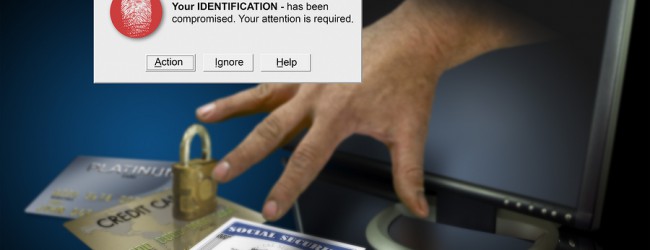Identity theft is the fraudulent use of a person’s personal identifying information.
Often, identity thieves will attempt to use another person’s personal information, such as a Social Security number, mother’s maiden name, date of birth, or account number to open fraudulent new accounts, charge existing credit card accounts, or even obtain new loans in a victim’s name.

There are multiple steps that you can take to safeguard yourself. The team at Johns Eastern recommends following these eight tips to protect yourself, and we recommend you start today:
- Monitor Your Credit Report.
You should obtain and thoroughly review your credit report (check for a free copy at www.Annualcreditreport.com) at least once every year to check for suspicious activity. If you find something that you do not recognize, alert your credit card company or the creditor immediately. You may also look into credit protection services, which will alert you any time a change takes place with your credit report. - Review Your Credit Card Statements Thoroughly.
When identity thieves get access to your information, they generally will attempt to make a purchase using your credit card information. Carefully review your statements and make sure that you recognize the locations and stores that you have made purchases at, and mark anything that you do not recognize. If you find a fraudulent charge, contact your credit card company right away regarding the charge. - Close accounts that you are no longer using.
Many of us have accounts and credit cards open that we just do not use any longer. Consider closing these accounts, and cutting up the cards associated with them. The fact that you are not using them often is even more of an opportunity for an identity thief to capitalize and take advantage of you. - Know Exactly Who You Are Dealing With.
Whenever someone contacts you asking for private identity or financial information, make no response other than to find out who they are, what company they represent and the reason for their call. If you think the request is legitimate, contact the company yourself and confirm what you were told before revealing any of your personal data. Identity thieves will often make phone calls to potential victims and attempt to gain information like answers to security questions, passwords, and card information. Many times, they’ll pose their questions as a need to “confirm” who you are, when in reality they are simply fishing for information. - Never Leave a Paper Trail.
Do not leave behind those ATM receipts. In addition, you should not leave behind credit card and gas station receipts either. - Guard Your Social Security Number.
Your Social Security number is unique to you, and is a primary goal for an identity thief. Guard your Social Security number at all times. Do not carry it in your wallet, and never write it on stray pieces of paper. If an identity thief obtains your Social Security number, a simple Google search can help them find most of the other information needed to steal your identity. So store your card and any other documents that possess your Social Security number, i.e. health insurance cards, etc., in a safe place and only take them out when absolutely necessary. - Shred Private Documents.
Many of us keep a file with our sensitive data, but in reality, you should consider shredding these documents. Generally these documents carry loads of financial and personal information, and are a treasure chest of risks for you to keep around. Shred these documents whenever possible. - Never let your credit cards out of your sight.
This may seem obvious, but many times we can sit our wallets and purses down and not realize the vulnerability of the situation. In addition, many times, consumers will allow a merchant to take a card to another register or into a back room. Never allow these things, and always keep your card in your view.
In today’s world, protecting your identity is a serious matter. Your identity is an asset—as valuable as cash in hand —and it can be easily compromised through theft or a data breach. So make sure you take the necessary steps to manage and protect your identity at all times.
